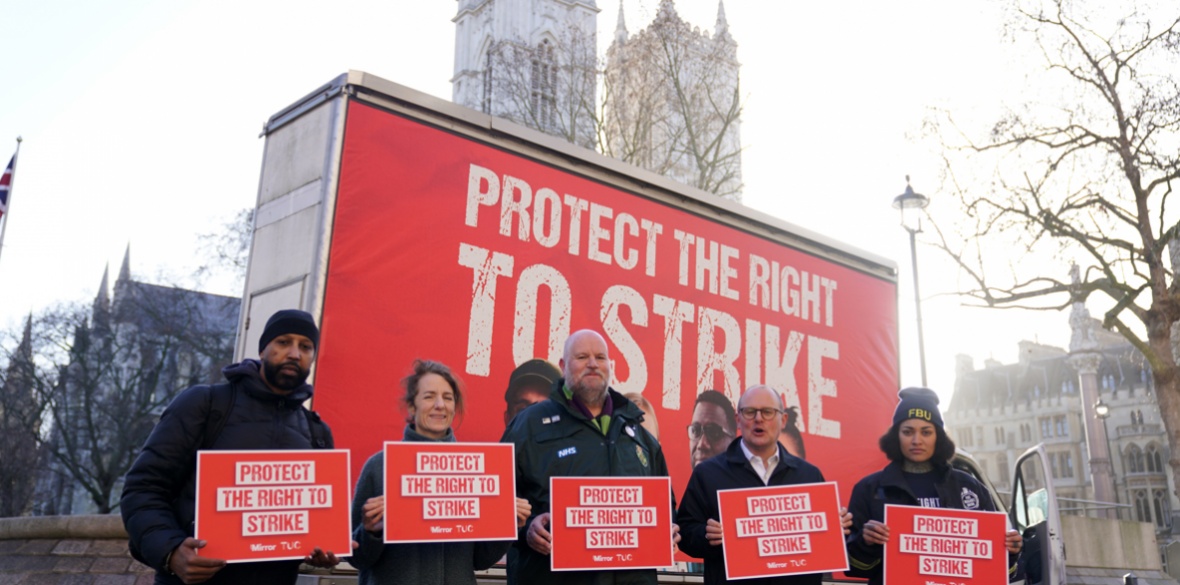This is the last article you can read this month
You can read more article this month
You can read more articles this month
Sorry your limit is up for this month
Reset on:
Please help support the Morning Star by subscribing here
THE TUC is calling today for solidarity in defence of democracy and against racism and extremism to mark the day 90 years ago that trade unions were banned in Nazi Germany.
Union offices were raided and officials and activists rounded up on May 2 1933; some were tortured and some died in concentration camps in the years that followed.
Independent trade unions were replaced with the Nazi-controlled German Labour Front, a propaganda tool for the regime and its hate-filled anti-semitic ideology.
“Trade unions are a bastion of democracy and freedom against authoritarian and violent regimes,” said the TUC, which is providing training and resources for union activists to counter racism, including anti-semitism, and attempts by the far right to recruit in workplaces.
Persecution of trade unionists continues around the world, the union body said.
The International Trade Union Confederation, which monitors the denial of workers’ rights and trade union freedoms and the persecution and murder of trade unionists, said that in 2022, trade unionists were killed in 13 countries and workers were exposed to violence in 50 countries.
TUC general secretary Paul Nowak said: “Trade unions promote democracy in the workplace and beyond.
“That makes us a target for authoritarian regimes. When we come under attack it is a sign that democratic government is in danger too.
“Ninety years on from the Nazis banning trade unions, there are lessons for us today.
“Solidarity matters not only within trade unions: we must build out alliances across civil society to counter anti-semitism and racism in all its forms.
“And we must actively organise against attempts by the far right and other extremists to spread their hate-filled ideology.”
When Tory leader Margaret Thatcher came to power in 1979, Britain had 13.5 million TUC-affiliated trade union members. After four decades of anti-union and anti-strike laws and the de-industrialisation implemented under the Thatcher government and beyond, there are now 5.5 million.
Manufacturing closures have seen many craft-based unions disappear or merge with larger unions.
Public-sector union membership is now higher than the private sector: public service union Unison now claims to be Britain’s biggest union with 1,184,000 members. Unite, with members in public and private sectors, has 1,130,000 members.

 Peter Lazenby
Peter Lazenby










